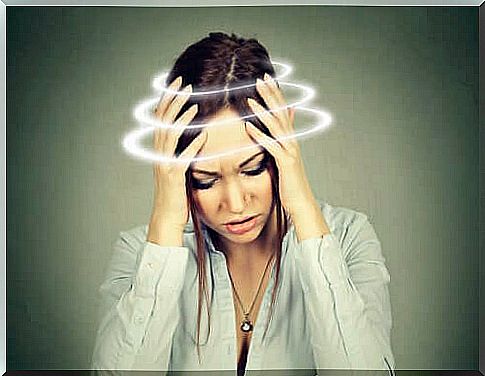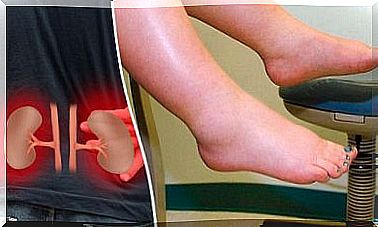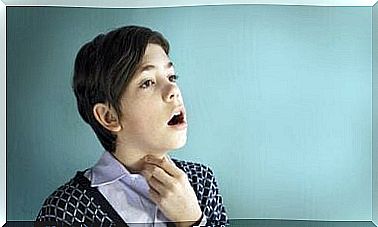What Are The Symptoms Of Vertigo?
Dizziness is often accompanied by nausea, headache, blurred vision, and difficulty walking. Learn more in this article!

Vertigo is a complex sensation to describe, which consists of the perception of movement, as if everything is revolving around or inside our head. The word comes from Latin, where “ vertere ” means to turn.
Dizziness and lightheadedness are one of the most common reasons for seeing a doctor. In fact, it is estimated that around 40% of people over 40 consult for this reason.
This feeling is usually related to a disturbance in the balance system. This system, called the vestibular system, is located inside the ear. Disorders associated with this organ are very common and can appear at any age.
Therefore, in this article, we tell you everything you need to know about vertigo and the symptoms that usually accompany it. Knowing these symptoms is important because it is a difficult feeling to describe and diagnose.
What is vertigo?
The inner ear contains the vestibular system, which allows a man to maintain his balance. In addition, it is also responsible for making us aware of our posture and relating us to space properly.
Most cases of vertigo are usually caused by an alteration in this system. It consists in perceiving a sensation of movement, of oneself or of what surrounds us, without there being one in reality. Some people experience this as a “fall into the void”.

It is a disorder that can affect anyone at any age. However, as we have already mentioned, it is much more common after the age of 40. Dizziness can be classified into different types:
- Peripheral vertigo : it is produced by the alteration of this vestibular system. It is the most common and is usually associated with lesions in the ear. Therefore, it is common for these people to also have hearing loss.
- Central vertigo : here, the nervous circuits which carry information from the ear and interpret it are damaged. This interpretation takes place in the brainstem
- Positional : it appears in the form of short episodes. It is a response to changes in the position of the head and is usually mild
- Cervical : this is caused by an alteration of the cervical vertebrae
There are many types of vertigo because the function of balance and posture follows a complex nervous circuit involving many parts of the body. However, all types produce the same complex sensation of movement.
What other symptoms accompany vertigo?
In addition to perceiving that everything around you is spinning, there is a series of symptoms that usually accompany vertigo. For example, it is very common to have nausea and even vomiting. Likewise, people who suffer from it often lose their balance and fall.
Depending on the type of vertigo, it is easier to find some symptoms than others. In the case of peripheral vertigo, there is usually a decrease in hearing, as we have mentioned. You may also hear constant ringing in the ears.
In other cases of vertigo, we may find that the vision is impaired as well. Many people see double or cannot focus their vision properly. There are even people who lose the ability to speak properly.
On the other hand, vertigo can be accompanied by paralysis of the muscles of the face or a feeling of tiredness and weakness in the legs. People who suffer from it often experience anxiety and distress as it becomes much more difficult to walk or move around.
It is important to note that although most cases of vertigo present as brief episodes, they can last for several days. In addition, they can occur in children as well as in adults.

How is this problem diagnosed and treated?
In order to be able to diagnose vertigo, the most important thing is to explain to the doctor very precisely what the sensation is. The rest of the symptoms that appear should also be pointed out.
Normally, the otolaryngologist is responsible for exploring the ear and the rest of the balance system. Depending on the cause of the vertigo, the treatment will be different. It can be treated with certain medications and even with surgery, but it depends on each case.
Ideally, when you feel dizzy, you should go to the doctor. You should also go if you have any of the accompanying symptoms that we have mentioned. It is a complex disorder that can have several causes, so it is necessary to study it well.









